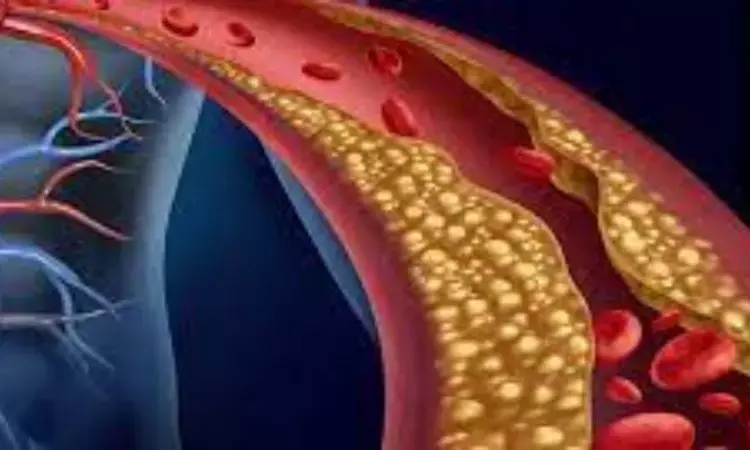- Home
- Medical news & Guidelines
- Anesthesiology
- Cardiology and CTVS
- Critical Care
- Dentistry
- Dermatology
- Diabetes and Endocrinology
- ENT
- Gastroenterology
- Medicine
- Nephrology
- Neurology
- Obstretics-Gynaecology
- Oncology
- Ophthalmology
- Orthopaedics
- Pediatrics-Neonatology
- Psychiatry
- Pulmonology
- Radiology
- Surgery
- Urology
- Laboratory Medicine
- Diet
- Nursing
- Paramedical
- Physiotherapy
- Health news
- Fact Check
- Bone Health Fact Check
- Brain Health Fact Check
- Cancer Related Fact Check
- Child Care Fact Check
- Dental and oral health fact check
- Diabetes and metabolic health fact check
- Diet and Nutrition Fact Check
- Eye and ENT Care Fact Check
- Fitness fact check
- Gut health fact check
- Heart health fact check
- Kidney health fact check
- Medical education fact check
- Men's health fact check
- Respiratory fact check
- Skin and hair care fact check
- Vaccine and Immunization fact check
- Women's health fact check
- AYUSH
- State News
- Andaman and Nicobar Islands
- Andhra Pradesh
- Arunachal Pradesh
- Assam
- Bihar
- Chandigarh
- Chattisgarh
- Dadra and Nagar Haveli
- Daman and Diu
- Delhi
- Goa
- Gujarat
- Haryana
- Himachal Pradesh
- Jammu & Kashmir
- Jharkhand
- Karnataka
- Kerala
- Ladakh
- Lakshadweep
- Madhya Pradesh
- Maharashtra
- Manipur
- Meghalaya
- Mizoram
- Nagaland
- Odisha
- Puducherry
- Punjab
- Rajasthan
- Sikkim
- Tamil Nadu
- Telangana
- Tripura
- Uttar Pradesh
- Uttrakhand
- West Bengal
- Medical Education
- Industry
Evinacumab effective and well tolerated for LDL cholesterol lowering in refractory hypercholesterolemia patients: JAMA

USA: A recent study published in JAMA Cardiology has demonstrated the potential utility of evinacumab as an effective and generally well-tolerated lipid-lowering therapy (LLT) for patients with refractory hypercholesterolemia.
The intravenous administration of evinacumab, 15 mg/kg, once every 4 weeks provided sustained and clinically meaningful reduction in LDL (low-density lipoprotein) cholesterol level over time, with a mean reduction of 45.5% at week 72 from baseline in the open-label treatment period of phase 2 randomized clinical trial (RCT) involving 96 patients with refractory hypercholesterolemia.
Previous studies have suggested that patients with refractory hypercholesterolemia who do not achieve their guideline-defined LDL-C thresholds despite treatment with maximally tolerated combinations of lipid-lowering therapies have an elevated risk of atherosclerotic cardiovascular disease (ASCVD).
Robert S. Rosenson, Icahn School of Medicine at Mount Sinai, New York, New York, and colleagues aimed to evaluate the longer-term safety and efficacy of evinacumab in patients with refractory hypercholesterolemia.
The RCT included a 2-week screening period followed by a 16-week double-blind treatment period (DBTP) for subcutaneous regimens (once weekly [QW], 450 mg evinacumab; once weekly 300mg evinacumab; 300 mg evinacumab every 2 weeks; or placebo QW) or a 24-week DBTP for intravenous regimens (5 mg/kg evinacumab every 4 weeks [Q4W]; 5 mg/kg evinacumab Q4W; or placebo Q4W); a 48-week open-label treatment period (OLTP) for IV treatment only; and a 24-week follow-up period.
For the study, the researchers recruited patients from 85 sites across 20 countries; they included patients with primary hypercholesterolemia who entered the 48-week OLTP. Hypercholesterolemia was defined as heterozygous familial hypercholesterolemia or established clinical ASCVD without familial hypercholesterolemia. Also, hypercholesterolemia of the patients was refractory to maximally tolerated LLTs.
All the patients entering the OLTP received 15 mg/kg evinacumab intravenously Q4W. Efficacy outcomes included changes from baseline to week 72 (end of the OLTP) in LDL-C level and other lipid/lipoprotein parameters. Safety outcomes included assessment of treatment-emergent adverse events (TEAEs).
A total of 96 patients (mean age 54.4 years; 54.2% females) entered the OLTP, of whom 91.7% completed the OLTP. The mean baseline LDL-C level was 145.9 mg/dL.
The researchers reported the following findings:
- At week 72, evinacumab, 15 mg/kg, reduced the mean LDL-C level from baseline by 45.5% in the overall cohort.
- Evinacumab, 15 mg/kg, reduced mean apolipoprotein B (38.0%), non–high-density lipoprotein cholesterol (48.4%), total cholesterol (42.6%), and median fasting triglyceride (57.2%) levels at week 72 from baseline in the overall cohort.
- TEAEs occurred in 81.3% of the patients. Serious TEAEs occurred in 9.4% of the patients; all were considered unrelated to the study treatment.
"Results of this randomized controlled trial showed that evinacumab provided clinically meaningful and sustained reductions in LDL-C level and was generally well tolerated in patients with and without heterozygous familial hypercholesterolemia (HeFH) and refractory hypercholesterolemia," the researchers wrote.
"There is a need for larger studies in a broader population to define clinical efficacy and provide more robust long-term safety data," they concluded.
Reference:
Rosenson RS, Burgess LJ, Ebenbichler CF, et al. Longer-Term Efficacy and Safety of Evinacumab in Patients With Refractory Hypercholesterolemia. JAMA Cardiol. Published online September 13, 2023. doi:10.1001/jamacardio.2023.2921
Dr Kamal Kant Kohli-MBBS, DTCD- a chest specialist with more than 30 years of practice and a flair for writing clinical articles, Dr Kamal Kant Kohli joined Medical Dialogues as a Chief Editor of Medical News. Besides writing articles, as an editor, he proofreads and verifies all the medical content published on Medical Dialogues including those coming from journals, studies,medical conferences,guidelines etc. Email: drkohli@medicaldialogues.in. Contact no. 011-43720751


